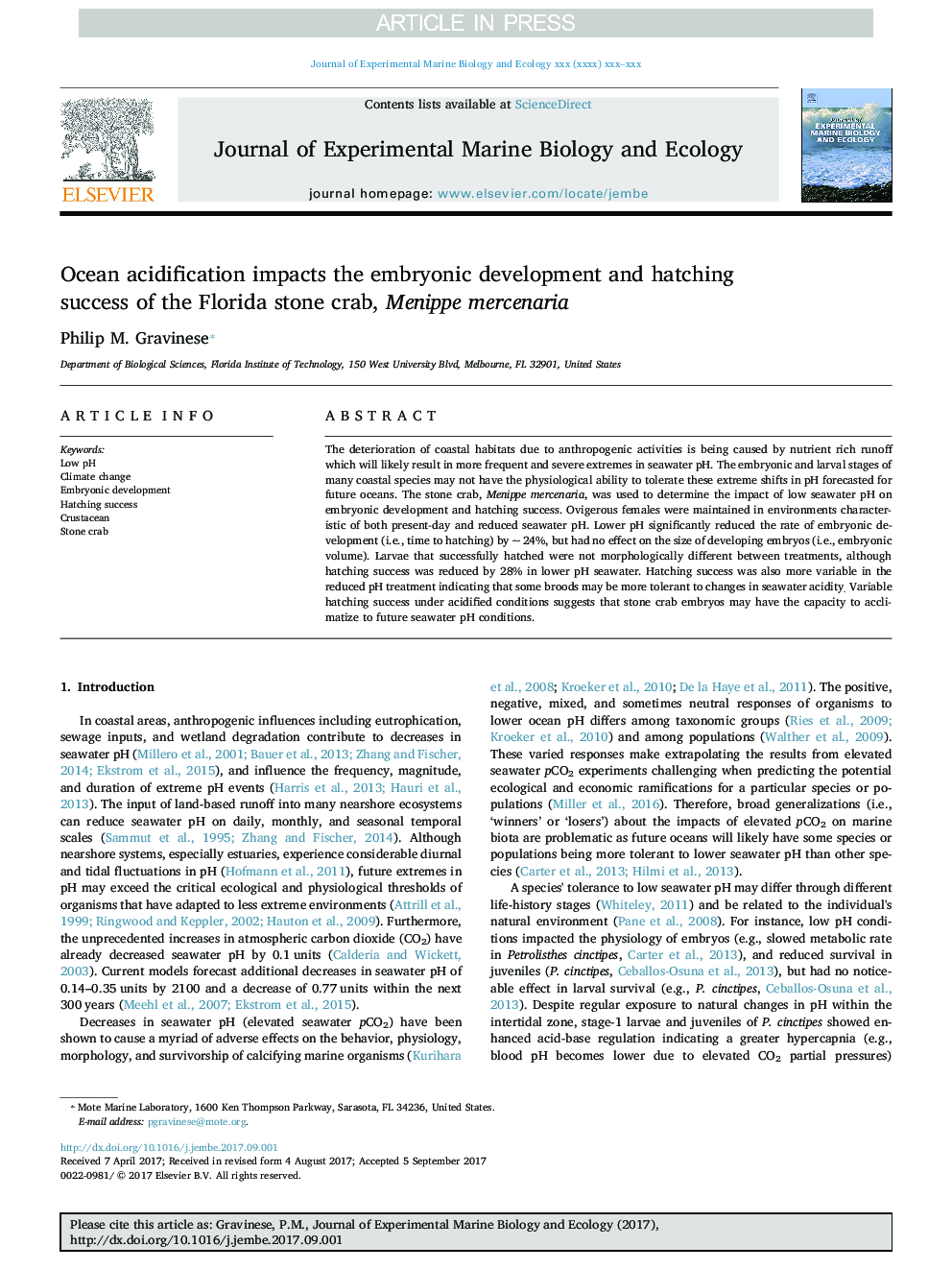| Article ID | Journal | Published Year | Pages | File Type |
|---|---|---|---|---|
| 8849013 | Journal of Experimental Marine Biology and Ecology | 2018 | 7 Pages |
Abstract
The deterioration of coastal habitats due to anthropogenic activities is being caused by nutrient rich runoff which will likely result in more frequent and severe extremes in seawater pH. The embryonic and larval stages of many coastal species may not have the physiological ability to tolerate these extreme shifts in pH forecasted for future oceans. The stone crab, Menippe mercenaria, was used to determine the impact of low seawater pH on embryonic development and hatching success. Ovigerous females were maintained in environments characteristic of both present-day and reduced seawater pH. Lower pH significantly reduced the rate of embryonic development (i.e., time to hatching) by ~Â 24%, but had no effect on the size of developing embryos (i.e., embryonic volume). Larvae that successfully hatched were not morphologically different between treatments, although hatching success was reduced by 28% in lower pH seawater. Hatching success was also more variable in the reduced pH treatment indicating that some broods may be more tolerant to changes in seawater acidity. Variable hatching success under acidified conditions suggests that stone crab embryos may have the capacity to acclimatize to future seawater pH conditions.
Related Topics
Life Sciences
Agricultural and Biological Sciences
Aquatic Science
Authors
Philip M. Gravinese,
